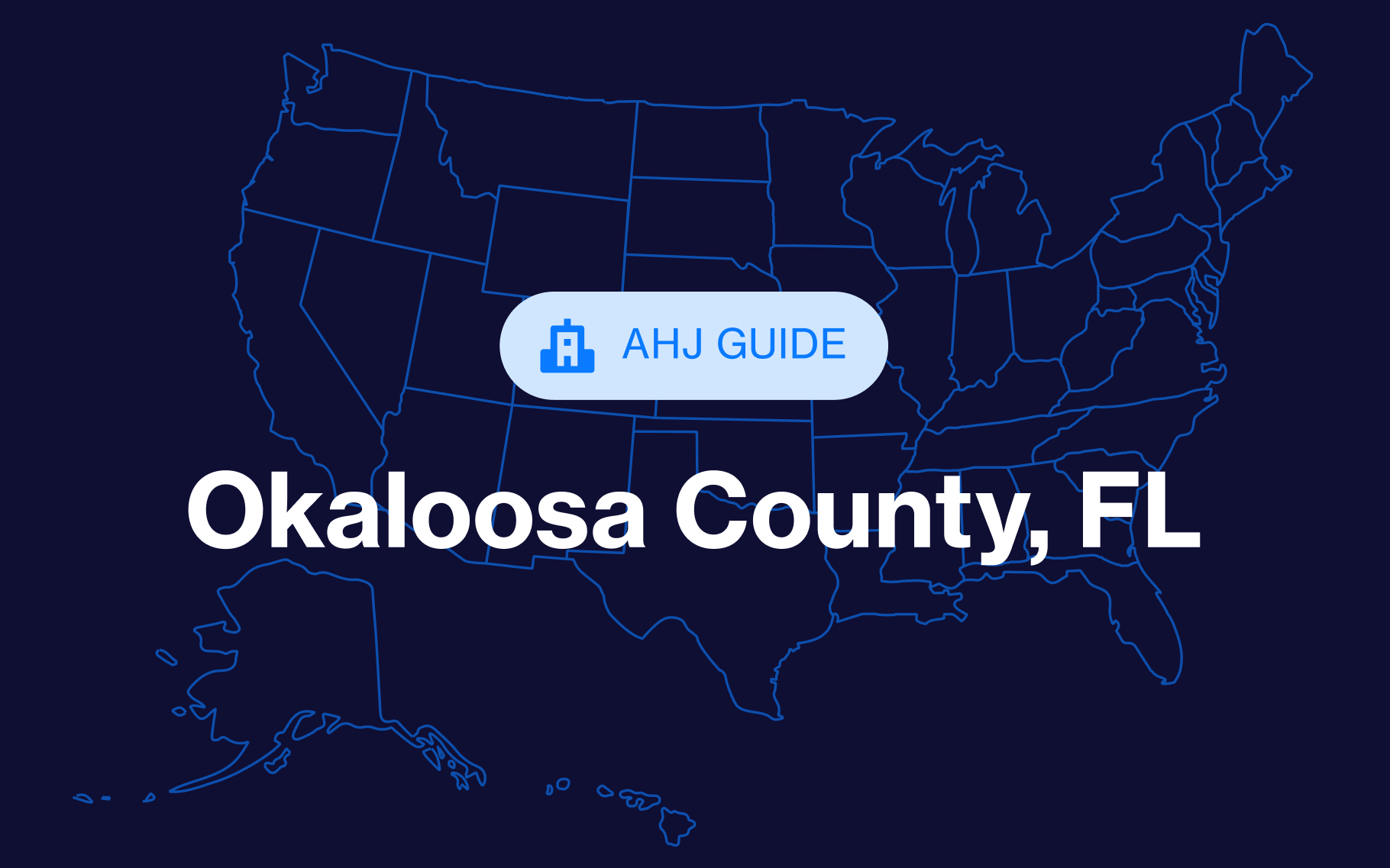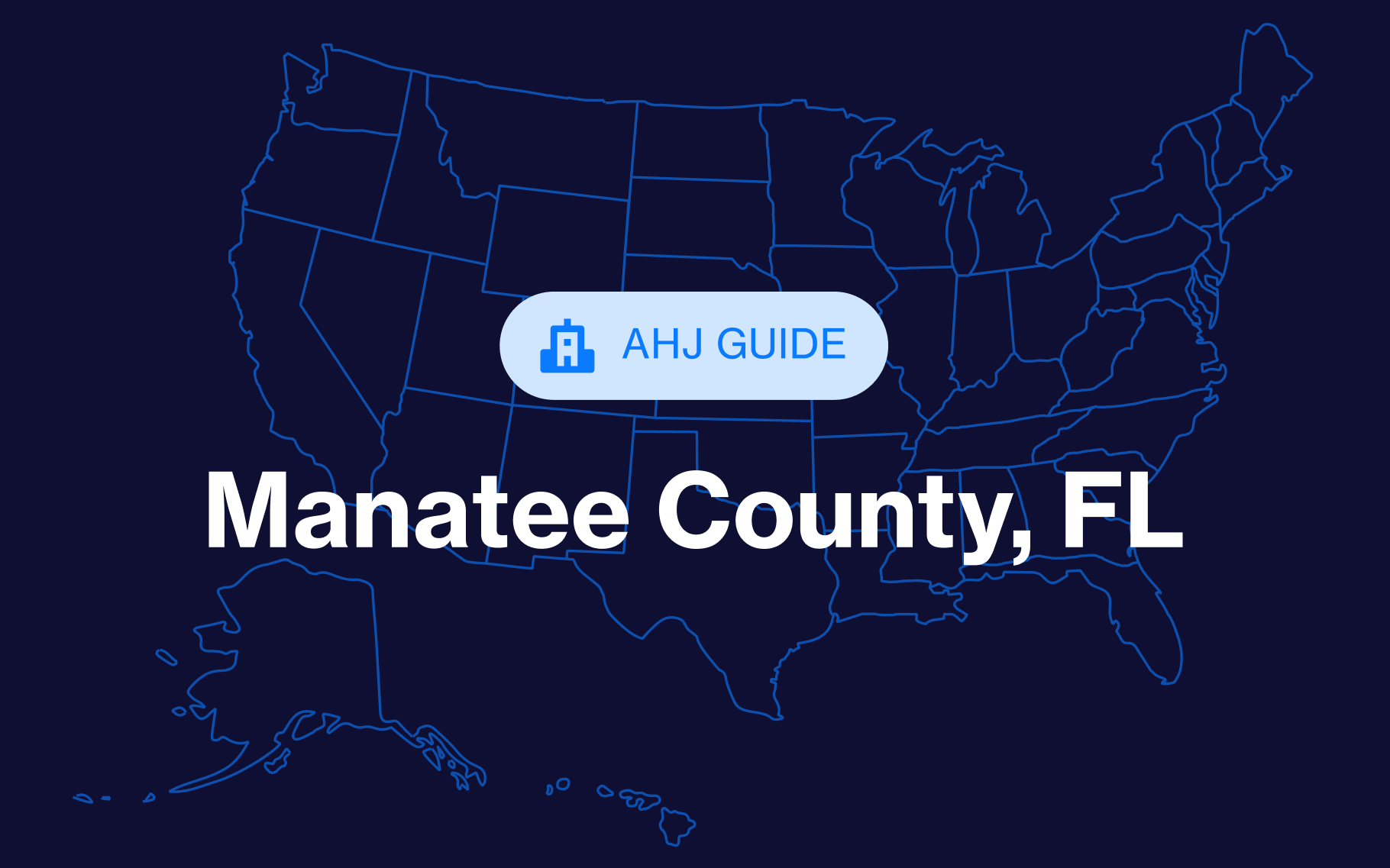In recent years, few markets have seen as much new development as Florida. According to data from Jobalia Development Group, the rate of new construction authorizations in Florida was almost twice the national rate at the start of 2024.
If you’re joining the wave of new construction permitting throughout the state, you’ll want to familiarize yourself with Florida building permit guidelines. Although counties and cities in Florida generally implement their own permitting processes, it can help to understand the rules and regulations set forth in the Florida Building Code.
What requires a building permit in Florida?
Some examples of projects that require a building permit in Florida:
- Building a new residential or commercial property
- Additions to existing structures
- Major alterations or renovations to existing structures
- Building large sheds, garages, or ADUs
- Installing new HVAC or plumbing systems
- Constructing swimming pools
- Installing electrical systems
Who issues building permits in Florida?
The Florida Department of Business & Professional Regulation oversees the Florida Building Commission and the Florida Building Code, which governs the construction, enlargement, repair, alteration, or demolition of any building or structure in the state of Florida. According to the Florida Building Code, anyone intending to perform such work needs to first apply for and obtain the appropriate permit from a local building official.
That said, Florida building permit requirements ultimately depend on the location of the project. The building department of the city where the project is located will review your application and issue a building permit.
Florida building permit costs
You can expect to pay a couple hundred or as much as several thousands of dollars for a building permit in Florida. The cost of your permit depends on the location where you’re building or renovating.
Some cities and counties charge permit fees as a percentage of the construction value. For example, Palm Beach County charges a base permit fee plus an additional percentage of the construction’s value.
Others price permits based on the square footage of the proposed structure. In Collier County, for example, new construction review fees are $0.055 per square foot, with a minimum of $100.
Unique considerations when permitting in Florida
- Hurricane resilience standards
- Building safety inspections must address both structural integrity and environmental factors like hurricane-force winds and flooding. Following Hurricane Andrew's devastation in 1992, Florida established comprehensive building codes that require impact-resistant glazing on windows and doors in wind-borne debris regions.
- Coastal Construction Control Line (CCCL)
- The CCCL isn't a "no-build" line, but rather a boundary where you'll need special permits. These permits help protect beaches, dunes, native plants, and sea turtles while allowing responsible construction.
- Environmental permitting
- Projects may require Environmental Resource Permits that address stormwater management, wetland protection, and wildlife habitat preservation.
- Post-storm recovery
- Recent legislation requires local governments to develop post-storm permitting processes and prohibits increasing building permit and inspection fees for 180 days after hurricane emergencies. Special provisions allow temporary shelters and RVs on certain properties for up to three years following hurricane damage.
How to get a building permit in Florida
1. Pinpoint the type of permit you need
First things first: Determine which permit you actually need for your unique project. Most jurisdictions offer dozens of permit types, categorized by the scope of the work and the type of construction.
If you’re not sure which type of permit you need, check the website of the local city or county’s building department.
2. Prepare and submit your application
Permit application requirements vary significantly by jurisdiction. In most regions, you can apply for a Florida building permit online. And in some cases, if you need a permit for a very simple project, you may be able to apply for a permit in-person and receive it the same day.
Regardless of the exact process, you’ll need to provide some basic information about the project and the work to be completed.
For example, you may be asked to provide the:
- Property address and other details, like the size of the land or structure
- Name and contact info of the building owner
- Contractor’s name and license number
- Bonding company’s name and address
- Architect’s name and contact information
- Size of the property
- Type of work to be done and the estimated cost
- Building/site plans for the project
Threshold inspections
In Florida, certain buildings called threshold buildings are subject to specific inspection requirements.
A threshold building is defined as one of the following:
- Any building more than three stories or 50 feet in height
- A building with an assembled occupancy of more than 5,000 sq. ft./500 people
For threshold building projects, you must submit a structural inspection plan. The local enforcing agency must review and approve that plan before issuing your permit. You’ll also be required to hire a “special inspector” who will inspect the building according to the approved plan.
3. Pay fees
Unfortunately, there’s no such thing as a free permit. After submitting your permit application, you’ll likely have to pay certain fees before the city will review your plans. Often you’ll have to pay certain fees after your application is approved, too.
4. Receive and post your permit
Congratulations, you’ve received your Florida building permit! You’re ready to start work on the project if you’ve paid all relevant fees and received your official permit. Just be sure to post the permit at the worksite before getting started.








